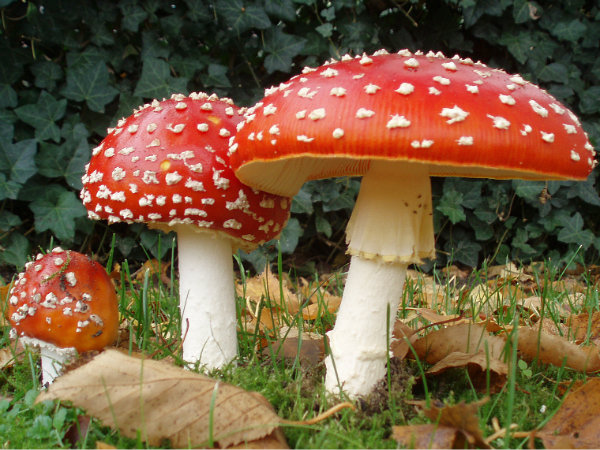Celebrity horticulturist Alan Titchmarsh has found a variety of mushroom known for its hallucinogenic effect growing in the Queen’s garden at Buckingham Palace.
The TV gardener, along with ecologist Professor Mick Crawley, was looking at the different species of plants and flowers growing in the 40 acre plot when he spotted the vibrant red and white mushroom called Amanita muscaria, more commonly known as fly mushroom.
The Times reports Mr Titchmarsh turning to the professor and asking: “Is it edible?”
“That depends what you mean.” Professor Crawley replied. “It’s eaten in some cultures for its hallucinogenic effects. But it also makes people who eat it very sick.
“The old-fashioned thing to do was feed it to the village idiot, then drink his urine because you get all the high without any of the sickness.
Perhaps sensibly, Mr Titchmarsh said: “I think I’ll forgo that and stick to some normal mushrooms” before adding: “Not something to try at home.”
Mr Titchmarsh later told The Sun that to find the mushroom growing somewhere like Buckingham Palace, in the centre of London tended by a team of gardeners “shows just how varied the species are.”
It is understood that rather than being deliberately planted in the Queen’s garden, the fly mushrooms have grown naturally.
According to the Kew Gardens website, the hallucinogenic properties have been well-known for centuries and have been used in religions and shamanistic rituals especially in Siberia.
It’s colouring and shape make it one of the most iconic toadstools, commonly appearing in children’s books around the world.
Luckily, considering that consuming it may be fatal, its distinctive markings make it virtually impossible to confuse with any other species.
Although a halluciogen, it is vital to the ecosystem and forms a relationship with tree roots, particularly the birch and the pine tree. It is also a source of food for some lava and used by beetles as breeding sites.
A Buckingham Palace spokesman told the paper: “For the avoidance of doubt, fungi from the garden are not used in the palace kitchens.”
The mushroom contains poisons which can be fatal if consumed and should be avoided.

COMMENTS
Please let us know if you're having issues with commenting.